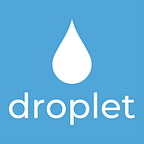What is a trustmark? A great definition shared at our recent event was this:
A badge-image issued by an authoritative body which a website can display to signify that it meets certain standards.
Examples of companies currently issuing trustmarks you may have seen include The Better Business Bureau and McAfee. When you see a badge from one of these companies you immediately feel safer, because you know that a reputable third party has checked things out and signed off that they meet given standards for safety, security and/or operations.
You may also look for similar kinds of marks when you go to the store and look for the “certified organic,” “fair trade,” or “leaping bunny” labels, each signifying their own set of standards you may care about. Another mark you might see is the B-Corps symbol, which certifies that a company meets certain ethical and responsibility standards.
These kinds of trustmarks are becoming increasingly helpful and important in a world where we want to be aware as consumers, but it’s impossible to keep up with what every business is doing. To not have to do the research (if we even can) into what’s going on behind the scenes at every company we come in contact with is invaluable. So why do we have no such trustmarks in the world of big tech, the sector that is arguably affecting our lives and the world more than any other?
We here at droplet would love to see the development of trustmarks for social media. What would those look like? Well, you tell us. What sort of label would make you sigh a small sigh of relief, feeling suddenly more relaxed and safe when you saw it? A label that signified certain privacy features and standards? A label that signified certain ethical practices around design, to ensure that the design hasn’t been found to be addictive or harmful in some way? What about a label that signified the level of free speech or the type of content moderation on a platform?
We think it’s time we stop merely accepting the status quo when it comes to social media and start thinking about our own personal standards, just as we think about our concerns over pesticides on our food or the safety of sharing our credit card on a website. Higher standards are achievable, which just need to start demanding it.
